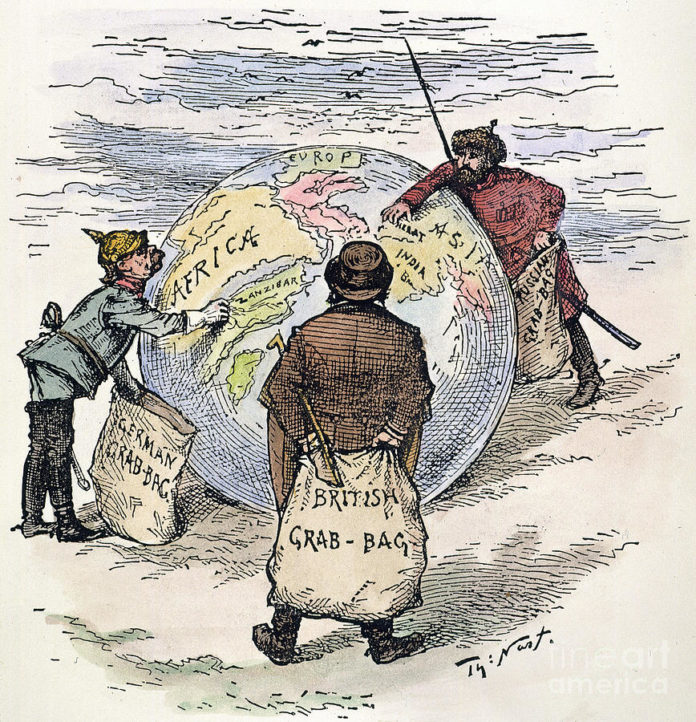“At first we were nationalists. Later, since nationalism was ugly, we became “abertzales” (patriots). Now patriotism is not pretty either, and you have to be a non-nationalist and non-patriot independentist ….. Always retreating. “
Joxe Azurmendi, “Hizkuntza, Nazioa, Estatua”.
We were shocked to hear a well-known leader of the Basque Patriotic Left a few years ago say this in Scotland: “I am an independentist, but I am not a Basque patriot (abertzale).” It was unusual to hear that then, but afterwards that expression gained popularity among us. Now there are many who identify with it.
The word “nationalist” is not well received in Europe, because its true meaning has become (or has been) distorted. Great intellectual confusion has been created deliberately around this, making nationalism and imperialism synonymous, as a result of which it is not unusual to read in many places that Hitler was also a nationalist. It is a common belief that right here in Europe nationalism was the cause of many wars and massacres in the past (when the real culprit of those conflicts was imperialism).
One of the best essays ever written on nationalism, the “Nationalist Manifesto” by Ulises Moulines (see here the two articles we edited about it: https://www.naziogintza.eus/en/2118/) and (https://www.naziogintza.eus/en/nationalist-manifesto-summary-of-the-text-by-c-ulises-moulines-part-2/) clearly distinguishes Hitler’s “nationalism” (which really was imperialism) from that of Ghandi. The Moulines quotation is worth reproducing here:
Therefore, they put into the same bag, for example, Hitler’s supposedly ‘nationalist’ program and Gandhi’s really nationalist program. And since no one of good will can be in favor of Hitler’s program, it follows that that same person cannot be in favor of Ghandi’s program. That, clearly, is a politological “reductio ad absurdum”. All this is due to an evident deontological confusion, which is created by saying that some nation has the right to be while other nations do not have that same right. The first, saying that a nation has the right to be, correctly using terminology and concepts, must be defined as “nationalism.” The second, which denies the right to be, should not be defined as “nationalism”, but as “imperialism”, “racism” or “hegemonism”.
True nationalism only asks for the right of a nation to exist, on the same level as other nations; hegemonism – sometimes incorrectly called “nationalism” – demands the right of one nation to dominate or to make other nations disappear. “
It is necessary, therefore, to distinguish nationalism from imperialism. But in addition to that, it is necessary to clarify the differences between the nationalisms of the states and the nationalism of the stateless nations. The desire to protect a threatened language, culture and identity is at the base of the nationalism of the Stateless Peoples, in addition to the legitimate desire to increase their sovereignty or even to form an independent state. The characteristics of state nationalism, on the other hand, are not so much to defend their collective personality (which is not normally threatened, since states have tools to defend it), but the desire to eliminate their internal national minorities and impose hegemonic centralculture of the State, making it more uniform. The border between this type of nationalism and imperialism is often very blurred.
Imperialism is the most despicable political ideology that a People can develop. Imperialism seeks to dominate Peoples who are free and put them at the service of the imperialist state, in addition to looting those Peoples. The imperialist state has no hesitation in using violence to achieve its objectives (this has been the reason for many wars) and frequently shows a cultural and moral supremacism over the Peoples it oppresses and dominates. The imperialist state pursues the destruction of the nations dominated by it (annihilating their language, culture and personality) and appropriates their material goods and heritage. It applies “ethnocidal” policies for this, policies that we must recognize have been very effective throughout history.
Showing limitless cynicism, the imperialist state (which never considers itself as such) insults and disqualifies the dominated People when they rise up, calling them “nationalist”. And then it repeats that all nationalisms are bad and perverse. Truly incredible! That is like saying that English imperialism was good and Gandhi nationalism was bad. That is like saying that the nationalism of the Baltic republics was petty, and Soviet imperialism was just. That is to call the pro-independence Basque and Catalan nationalists fanatics, and Spain and France sensible “democratic states of law.” The same old song.
We must not fall into their trap. We should not think that our nationalism is chauvinistic or reactionary. Our nationalism is the defensive response against the imperialism of centuries of Spain or France, the response to that imperialism whose objective is the disappearance and assimilation of our nation (an objective that at certain moments in history has been fierce but at other times more discreet and concealed). We are Basque nationalists and patriots, and we are not willing to renounce who we are or give in to the imperialists’ objective of annihilating us as a nation.
The French and Spanish imperialists have told us so many times that “all nationalisms (ours, of course) are bad” that in the end we have assimilated that erroneous and perverse idea. And what is worse, we have given them a clumsy answer: that they too are nationalists. Well no, they are not nationalists, but imperialists. When we confuse the most basic concepts, we always lose out in the ideological battle.
We will not allow those who want to assimilate us to impose their terminology on us. The political ignorance of the dominated is the dominator’s most effective weapon.








